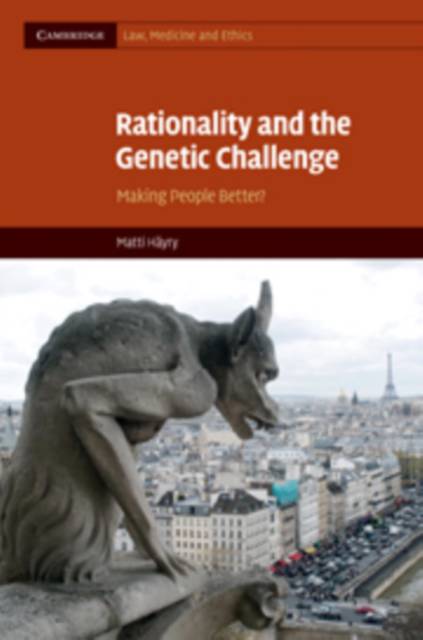
- Afhalen na 1 uur in een winkel met voorraad
- Gratis thuislevering in België vanaf € 30
- Ruim aanbod met 7 miljoen producten
- Afhalen na 1 uur in een winkel met voorraad
- Gratis thuislevering in België vanaf € 30
- Ruim aanbod met 7 miljoen producten
Zoeken
€ 125,45
+ 250 punten
Uitvoering
Omschrijving
Should we make people healthier, smarter, and longer-lived if genetic and medical advances enable us to do so? Matti Häyry asks this question in the context of genetic testing and selection, cloning and stem cell research, gene therapies and enhancements. The ethical questions explored include parental responsibility, the use of people as means, the role of hope and fear in risk assessment, and the dignity and meaning of life. Taking as a starting point the arguments presented by Jonathan Glover, John Harris, Ronald M. Green, Jürgen Habermas, Michael J. Sandel, and Leon R. Kass, who defend a particular normative view as the only rational or moral answer, Matti Häyry argues that many coherent rationalities and moralities exist in the field, and that to claim otherwise is mistaken.
Specificaties
Betrokkenen
- Auteur(s):
- Uitgeverij:
Inhoud
- Aantal bladzijden:
- 286
- Taal:
- Engels
- Reeks:
- Reeksnummer:
- nr. 11
Eigenschappen
- Productcode (EAN):
- 9780521763363
- Verschijningsdatum:
- 11/02/2010
- Uitvoering:
- Hardcover
- Formaat:
- Genaaid
- Afmetingen:
- 152 mm x 229 mm
- Gewicht:
- 616 g

Alleen bij Standaard Boekhandel
+ 250 punten op je klantenkaart van Standaard Boekhandel
Beoordelingen
We publiceren alleen reviews die voldoen aan de voorwaarden voor reviews. Bekijk onze voorwaarden voor reviews.







